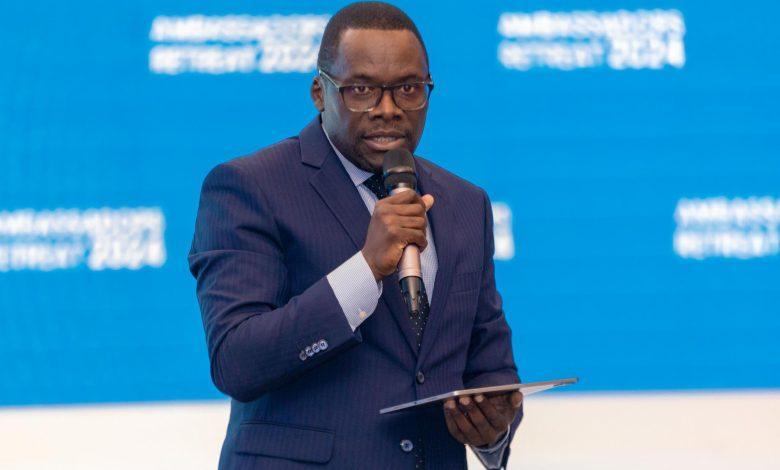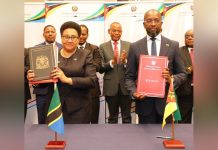Africa-Press – Tanzania. CHIEF Secretary Ambassador Moses Kusiluka has called on all top government executives to break away from the ‘business-as-usual’ approach as Tanzania embarks on the implementation of its newly launched long-term development blueprint, DIRA 2050.
DIRA 2050, unveiled by President Samia Suluhu Hassan on July 17th, this year, sets an ambitious course for the country to attain upper middle-income status by 2050, targeting a Gross Domestic Product (GDP) of 1 trillion US dollars and a per capita income of 7,000 US dollars (about 18m/-).
Speaking at the opening of a two-day retreat for top government officials at the Mwalimu Nyerere Leadership School in Kibaha, Coast Region yesterday, Amb Kusiluka stressed the need for government leaders to fully internalise the goals of DIRA 2050 and actively contribute to the development of the Long-Term Perspective Plan (LTPP).
“As we move towards its implementation, it is imperative to abandon the business-asusual’ mindset,” he said.
“Government officials must think and act beyond their individual ministries and adopt a national perspective, especially given the cross-cutting nature of their roles.”
The high-level retreat brought together Permanent Secretaries and their Deputies, the Deputy Attorney General, who was represented by Chief Parliamentary Draftsman Mr Onorius Njole, members of the LTPP Drafting team led by Ambassador Asha-Rose Migiro, selected members of the Cabinet Secretariat and officials from the National Planning Commission (NPC), which organised the event.
In her welcome remarks, Permanent Secretary in the Ministry of State, President’s Office (Planning and Investment) Dr Tausi Kida, thanked the Chief Secretary for prioritising the retreat.
She described it as a crucial step toward finalising the 25-year LTPP and shaping the five- and one-year plans that will operationalise DIRA 2050.
NPC Executive Secretary Dr Fred Msemwa provided a briefing on the implementation framework, reiterating President Samia Suluhu Hassan’s directives from the DIRA 2050 launch which include a mindset shift in public service delivery.
President Samia also demanded reviewing of existing policies to ensure alignment with DIRA 2050, modernising laws and regulations, positioning the private sector as a central player in development, strengthening institutional monitoring and evaluation systems and enhancing public awareness to ensure Tanzanians are informed about DIRA 2050, whose implementation will officially begin July next year.
The government aims to position logistics, digital transformation, energy, science and technology, and research and development (R&D) as the main drivers of economic transformation under the vision.
At the official launch in Dodoma, Minister of State in the President’s Office (Planning and Investment), Professor Kitila Mkumbo said that the vision’s targets are both ambitious and achievable.
“Given our current economic trajectory, we are confident these goals are realistic. We can achieve upper middleincome status by 2050,” Prof Mkumbo said.
According to the World Bank, upper middle-income economies are defined as those with Gross National Income (GNI) per capita ranging from 4,466 to 13,845 US dollars.
DIRA 2050 also outlines social and economic transformation goals, including raising life expectancy from 68 to 75 years, ensuring universal access to secondary education and increasing tertiary education enrolment to 25 per cent.
Energy consumption is projected to rise to 3,000 kilowatt-hours per capita annually, while digital literacy is expected to reach 70 per cent.
The Vision also targets online delivery of 80 per cent of all government services and formal sector employment for at least 50 per cent of the workforce.
Furthermore, Tanzania is set to become Africa’s leading food producer and rank among the top 10 globally.
Gender equality is also a major focus, with the Vision aiming to make Tanzania one of the top 10 countries globally for gender parity.
DIRA 2050 is anchored on strong governance, peace, security and national stability, pillars seen as essential to the successful implementation of the country’s long-term aspirations.
For More News And Analysis About Tanzania Follow Africa-Press







